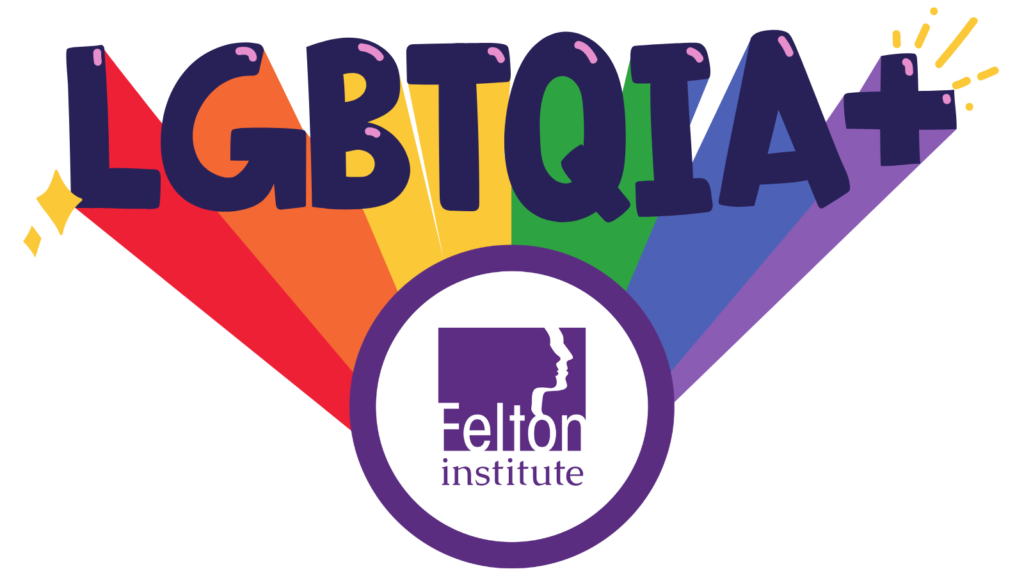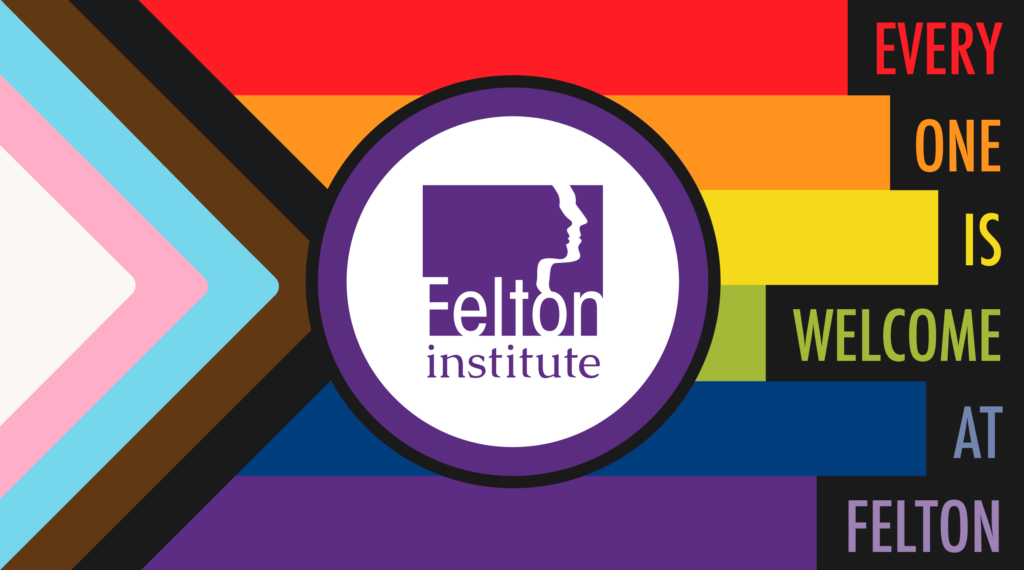Despite progress in dismantling discrimination against LGBTQIA+ people, mental health professionals and advocates still acknowledge the need to advocate for this population and promote their access to quality services. According to mental health professionals, the mental healthcare community needs to do better.
LGBTQIA+
What do all these letters mean?
The acronym LGBTQIA+ refers to a group of gender and sexual minorities and has become a synecdoche, or representation, for identity politics. ‘LGBTQIA+’ stands for lesbian, gay, bisexual, transgender (trans), queer (or questioning), intersex, asexual, and others. The plus (+) aims to include all identities, recognizing that some people do not identify as LGBT but do not fit into traditional categories of gender or sexuality.
Some of the barriers to care include discomfort disclosing one’s sexual identity and the heterosexist and cis-genderism assumptions during intake and health care encounters. Clients need to share their sexual history with health providers and feel comfortable answering and asking questions to have their needs assessed and met.
Internationally acclaimed Clinical Training Specialist Dr. Philip Tsui brings more than 35 years of LGBTQIA+ behavioral health experience to San Francisco Suicide Prevention (a program of Felton Institute) and as a Clinical Supervisor of Felton’s Senior Division and a Trainer in Felton’s Research and Training Division. He focuses on services for the LGBTQIA+ population and integrating cultural competency into care.
“In the late ‘80s and early ‘90s, my work focused on the HIV epidemic.” Dr. Tsui recalls the massive loss of life because there was no effective treatment for HIV infection. “It was a very challenging time for mental health professionals. When working with people with HIV and AIDS, we were talking about working with their mental health issues, facing their mortality, and going through the suffering that was associated with this serious infection, we were dealing with a massive trauma in the LGBT community across the nation,” says Dr. Tsui.
Currently, there are more than 5.5 million LGBTQIA+ people living in the United States. Providing access to mental health and training for mental health providers for lesbian, gay, bisexual, transgender, and queer individuals is critical. Progress has been made, but the fight remains against the longstanding history of discrimination. Up until 1973, the Diagnostic and Statistical Manual of the American Psychiatric Association still listed homosexuality as a mental disorder.
LGBTQIA+ Mental Health Statistics
The isolation, stigma, and trauma faced by our LGBTQIA+ community place them at higher risk for mental health conditions challenges, substance abuse, and psychiatric disorder such as depression.
- LGBTQIA+ people are at more risk of suicidal behavior and self-harm.
- Bisexual and gay men are 4x more likely to attempt suicide across their lifetime.
- LGBTQIA+ people are 1½ times more likely to develop depression and anxiety.
- 67% of Trans people experienced depression, and 46% had suicidal ideations.

LGBTQIA+ Subgroups and An Aging Population
Diversity of concerns exist within each sub-group of the LGBTQIA+ population. The transgender community experiences higher rates of psychological distress and other mental health conditions than their peers. LGBTQIA+ youth face challenges such as bullying, gender identity struggles for acceptance, and the trauma of coming out to their heterosexual parents.
LGBTQIA+ Seniors have been identified as an especially at-risk population. Current estimates show that a majority of adults living with the HIV virus are now aged 50 and older, with no children to support them in their golden years. Dr. Tsui explained that too often, “LGBTQIA+ people only have adopted family to provide psychosocial support, and that friendship support network is aging along with them. Social isolation, lack of familial support, and lack of nurturance from a younger generation is a major issue.”
All are Welcome at Felton
For increased impact and inclusivity, LGBTQIA+ clinicians and staff also should feel safe being open about their sexual identity in the workplace. Billing clerks to front desk staff must be vigorously trained in specialized LGBTQIA+ issues. And training must go beyond county-mandated training Sexual Orientation and Gender Identification (SOGI) videos.
At Felton Institute’s Research and Training Division, day-long workshops are offered to the public, clinicians, and Felton staff as part of collective efforts to shift the paradigm. In March 2020, participants completed a workshop training conducted by Dr. Philip Tsui, tackling the specific psychosocial and developmental issues of the LGBTQIA+. For more information, visit Felton Training. The courses are accredited through the American Psychological Association, CAMFT, and BBS for continuing education credits.
Apart from the San Francisco Suicide Prevention HIV Hotline program, two Felton programs feature services specifically supporting the LGBTQIA+ community. LGBTQIA+ Seniors in long-term residence homes receive culturally competent emotional and social support through the Senior Divisions’ Ombudsman Program. Transgender, Nonbinary, and Gender Nonconforming participants are offered a safe space to share their experiences as they re-enter society, under Justice Service’s CORE Program. The formerly incarcerated CORE clients can join 12-week group sessions. They develop skills related to living outside the court system such as self-advocacy, finding services, and conflict resolution-specific for their trans and nonbinary identity.
CORE Peer Specialist and Group Facilitator Celia Shure explains, “In this formerly incarcerated group, we need more representation and advocacy due to higher rates of institutional and interpersonal violence. At CORE, we can create a space to heal some of that trauma.”
Working with this population is not the sole burden of LGBTQIA+ people, says Dr. Tsui. “We need an LGBTQ curriculum for a full-service staff to provide not only culturally respectful service but technical competence in working with bio-psychosocial challenges specific to these clients.”
Continued advocacy for improving care and working to remove disparities is critical. Felton Institute actively chooses to be part of the solution, working on transforming agency-wide mental health culture, through competency and sensitivity, in the provision of services to the LGBTQIA+ community.
- For more information about Felton’s Training Workshops, email Felton Training Coordinator Dr. Schon Wade at swade@felton.org or visit: https://feltoninstitute.networkofcare4elearning.org/
- To learn more about the San Francisco Long-Term Care Ombudsman program you can call (415) 751-9788, email ombudsman@felton.org or visit the Ombudsman Program page at https://felton.org/ombudsman
- To learn more about Felton Institute’s CORE | Center of Reentry Excellence program email core@felton.org or visit the CORE program page at https://felton.org/core
About Felton Institute: Founded in 1889, Felton Institute responds to human needs by providing cutting edge, evidence-based mental health and social services that transform lives. Felton Institute is a tax-exempt organization registered 501(c)(3) nonprofit under EIN 94-1156530.
Offering more than 50 acclaimed and honored programs that address homelessness, mental health, prenatal, adolescent, adult, and senior needs, Felton Institute provides services in San Francisco, Alameda, San Mateo, Marin, and Monterey counties. Felton’s social services and programs utilize the latest scientific research, combining cultural sensitivity, deep respect for client and staff, and a commitment to social justice.
Felton is the oldest non-sectarian and nonprofit social services provider in the City and County of San Francisco. For over a century, Felton Institute has been at the forefront of social service innovation, pioneering new approaches to meet underserved populations’ emerging needs. At the heart of our work is the belief that individuals and families in crisis must have access to services and resources to help them build on their inherent strengths and develop self-sufficiency. www.felton.org

